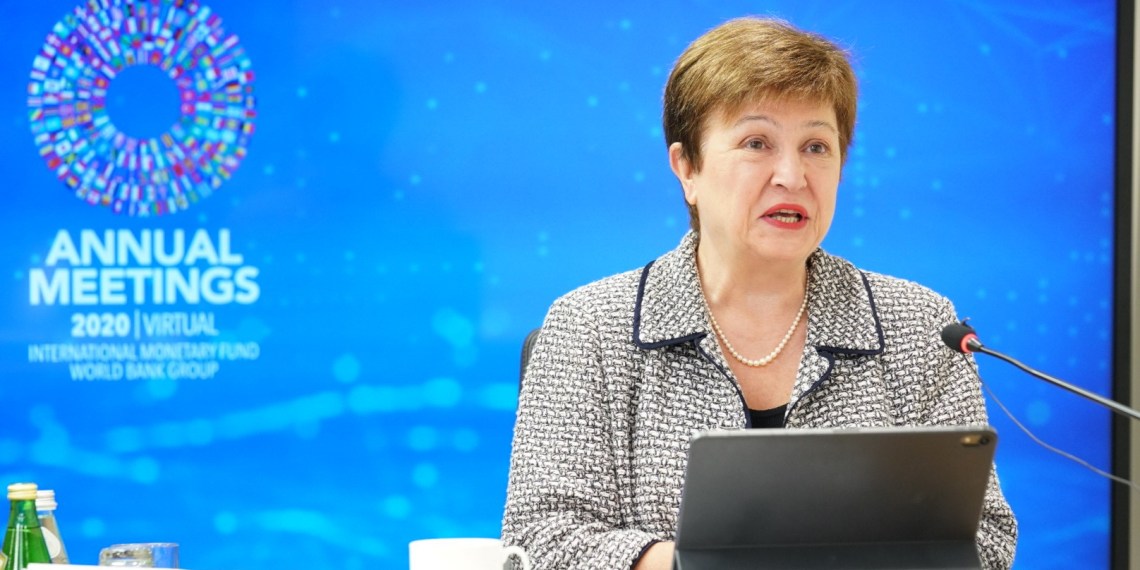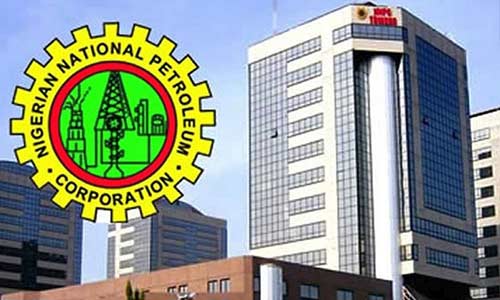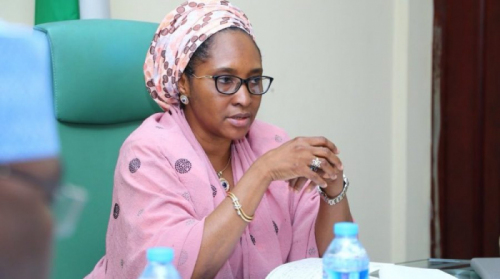Banking and Finance SECTOR INSIGHT 21/02/2022
Why IMF Won’t Channel $100b Loan Through AfDB, By President

The IMF will not channel the $100 billion Special Drawing Rights (SDR) loan for disbursement to Nigeria and other benefitting African countries through the African Development Bank (AfDB), it was learnt at the weekend.
International Monetary Fund (IMF) Managing Director Kristalina Georgieva, who dropped the hint, gave the Fund’s desire to protect the quality of the SDRs as reason.
Nigeria and other African countries have accessed $33 billion out of the $100 billion SDR plan for the region and $650 billion global SDR allocation scheme.
Other development banks were also denied the right to handle the SDRs for their regions by the IMF. They (regional banks) include the IMF are Asian Development Bank and European Development Bank.
Speaking at the weekend during the EU-AU Summit Roundtable on Financing for Sustainable and Inclusive Growth in Africa, IMF Managing Director Kristalina Georgieva, said the Fund wants to protect the reserve quality of SDRs.
She said there has been a lot of interest in whether IMF can channel SDRs through regional development banks.
“And the answer to this is, unfortunately, that we cannot. Let me explain why: We very much want to partner closely with the regional development banks. But the reason our members cannot channel SDRs directly to the regional development banks is because we have to protect the reserve quality of this asset called “Special Drawing Rights,” she said.
Speaking on the theme: “Stepping Up With and For Africa”, Georgieva explained that clearly, the responsibility to guarantee this reserve asset quality rests on the shoulders of the IMF.
She said: “It is vitally important for our members who are willing to provide the SDRs that we do this in legal compliance with the Fund’s regulations. In this context, however, we are advocating for even greater collaboration—to work in partnership, to draw on expertise from regional development banks, and to seek ways in which we can leverage more resources together.”
She went on: “The SDR has helped Africa – but it has not helped enough. In some countries, it amounted to as much as six per cent of their Gross Domestic Product (GDP) which is not at all trivial.
“But that said, $33 billion for African countries out of a US$650 billion global allocation is clearly not where we want to be.”
Georgieva said Africa experienced a painful contraction in 2020. Since then, it has started growing again – but for many countries growth falls short of what is needed.
“In both 2021 and 2022, Africa’s projected growth trailed the global average. And it ought to be the other way around. Africa should outperform the rest of the world -so countries can create jobs and lift up living standards. It is in this context that we at the IMF have taken unprecedented action to support our member countries, especially on the African continent. I like to say: we are stepping up with and for Africa,” she said.
Georgieva said the IMF is moving to the next frontier which is large scale on-lending of SDRs—from countries that got them but don’t need them as much, to countries that need them most.
She said: “This is the context for where we are headed. We are headed towards a global target for reallocation to vulnerable countries of $100 billion – a target set by leaders last year. At that time, for many it sounded quite unachievable. But today, we are more than halfway towards reaching this target.
“There are two avenues to deploy this on-lending of SDRs – first, the tried and tested Poverty Reduction and Growth Trust. I can proudly say that the IMF is in the position to lend to countries in proportion to the quality of their reform programs. We will not ration support for African members.
“But that is still not enough because we recognize that Africa, like the rest of the world, faces a complicated transition toward a low-carbon, climate-resilient economy. And Africa needs to build resilience to disasters and shocks.”
She went on: “The second ‘avenue,’ with the support of its members, will be creating the groundbreaking Resilience and Sustainability Trust (RST).
“For the first time in our history, the IMF will offer longer-term maturities and longer-term grace periods to support the structural transformation efforts of emerging market and developing economies.
“First, we will strive to keep interest rates very low—close to the interest rates for SDRs which today are still 0.05 per cent (five basis points). Second, we will offer policy support for longer-term structural transformation programs, with 10-year grace and 20-year repayment periods.
“Third, and this is our main objective, we aim to catalyze private sector investment in emerging market and developing economies. In other words, remove barriers to private sector participation and allow the scale of financing that Africa needs.
“Last May, we assessed the needs of the African continent up until 2024: just to overcome the impact of COVID-19 is $285 billion, and twice as much again to return Africa to a growth path where it can catch up or converge with the more advanced economies.
“That amount of money would, of course, also require reforms in countries, which we will be supporting—for domestic resource mobilisation, quality of spending (especially investments in human capital), and also to increase private sector participation.”



